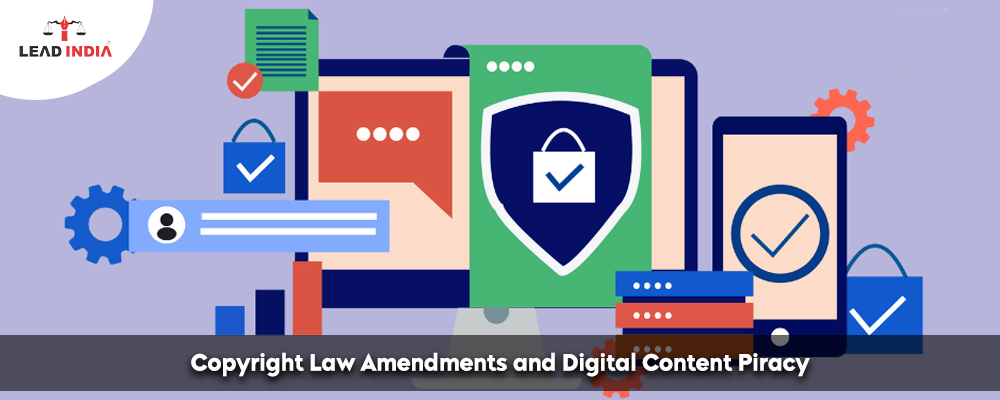The owner of intellectual property has the sole right, known as copyright. By doing this, the author’s work is protected from unauthorized use or reproduction and gives the owner the exclusive right to duplicate it.
The unauthorized use of another person’s creation is known as piracy. The term “piracy” refers to the unlawful use of another person’s work, invention, or conception, particularly when it involves copyright violation. Reproducing someone else’s work without their permission is against their copyright. The rise in piracy has coincided with the development of technology. The film business is the one where piracy is most common. Many illicit websites are the source of regularly downloaded pirated content. It is illegal to download or upload any content from these websites that is protected by copyright, including straightforward music videos, movies, or videos.
Need A Legal Advice
The internet is not a lawyer and neither are you. Talk to a real lawyer about your legal issue

Causes and Contributing Factors to Copyright Violations and Digital Piracy
Aspects of technology, society, and the economy all have a role in digital piracy and copyright violations. Among the main causes and contributing variables to these problems are:
- Economic disparities: As a source of free or inexpensive entertainment, piracy may be more appealing in nations with low incomes and restricted access to legal digital content.
- Insufficient knowledge: A large number of users may be unaware of the potential legal repercussions of downloading or streaming copyrighted content without authorization.
- Lack of access to authorized content: When authorized vendors are unable to deliver a product in the end user’s native tongue or nation, piracy becomes a viable alternative.
- Technological developments: While content creators now have more options to safeguard their creations including watermarking and digital rights management (DRM), the quick development of technology has also made it simpler for pirates to disseminate content covertly.
- Social norms: Due to the widespread use of file sharing and downloading, piracy may be seen in some societies as a victimless crime or legitimate behavior.
Legal provisions
- Copyright Act of 1957 (Amended in 2012): With a primary focus on combating digital piracy, the Copyright (Amendment) Act of 2012 significantly altered India’s anti-piracy regulations. Section 65(A) and Section 65(B), two significant provisions, were added to this amendment.
- Section 65(A) is regarding the Protection of Technological Measures: The Copyright Act provides that anyone willfully evading an effective technological measure put in place to protect rights granted by the Act to infringe those rights could be fined up to two years in prison.
- Information about the “Protection of Rights Management” is covered under Section 65(B). This clause states that anyone who knowingly takes part in the following two actions:
- Taking down or changing rights management data without the required authorization, or Distributing, importing for distribution, broadcasting, or publicly communicating copies of any work or performance while knowing that information related to electronic rights management has been unlawfully tampered with carries a potential two-year prison sentence and fine.
- These sections contain important legal measures designed to prevent digital piracy and protect data connected to copyright.
- Information Technology Act, 2000: This tackles the issue of digital piracy as well. The illegal online distribution of copyrighted content is punishable under Section 66 of this Act by up to three years in prison and fines of up to Rs two lakhs.
- Cinematograph (Amendment) Act, 2023: A recent piece of legislation in India updates the Cinematograph Act, 1952, with the Cinematograph (Amendment) Act, 2023. This important law in India was designed to stop people from pirating cinematographic films.
Policy and Education’s Role in Combating Digital Piracy and Copyright Violations
- Increasing consciousness: Reducing the number of people involved in copyright infringement and piracy can be achieved by educating users about the legal ramifications of these actions.
- Advancing choices that are lawful: The demand for pirated content might be decreased by promoting the usage of trustworthy digital platforms and services.
- Enacting more robust copyright legislation: Possible measures to discourage media pirates include tightening the definition of “willful infringement” and enacting felonies for illegal streaming.
- Bolstering the copyright sector: Protecting the rights of content creators and discouraging piracy can be achieved by bolstering the copyright sector and encouraging the use of DRM and watermarking.
Lead India provides free legal advice and online information among other legal services. We offer a platform where you can talk with a lawyer and ask legal questions. Lead India’s lawyers can help you with any legal matters. Lead India offers free online legal help in India. In addition to providing legal advice online, Lead India allows users to ask questions for free.





 Talk to a Lawyer
Talk to a Lawyer